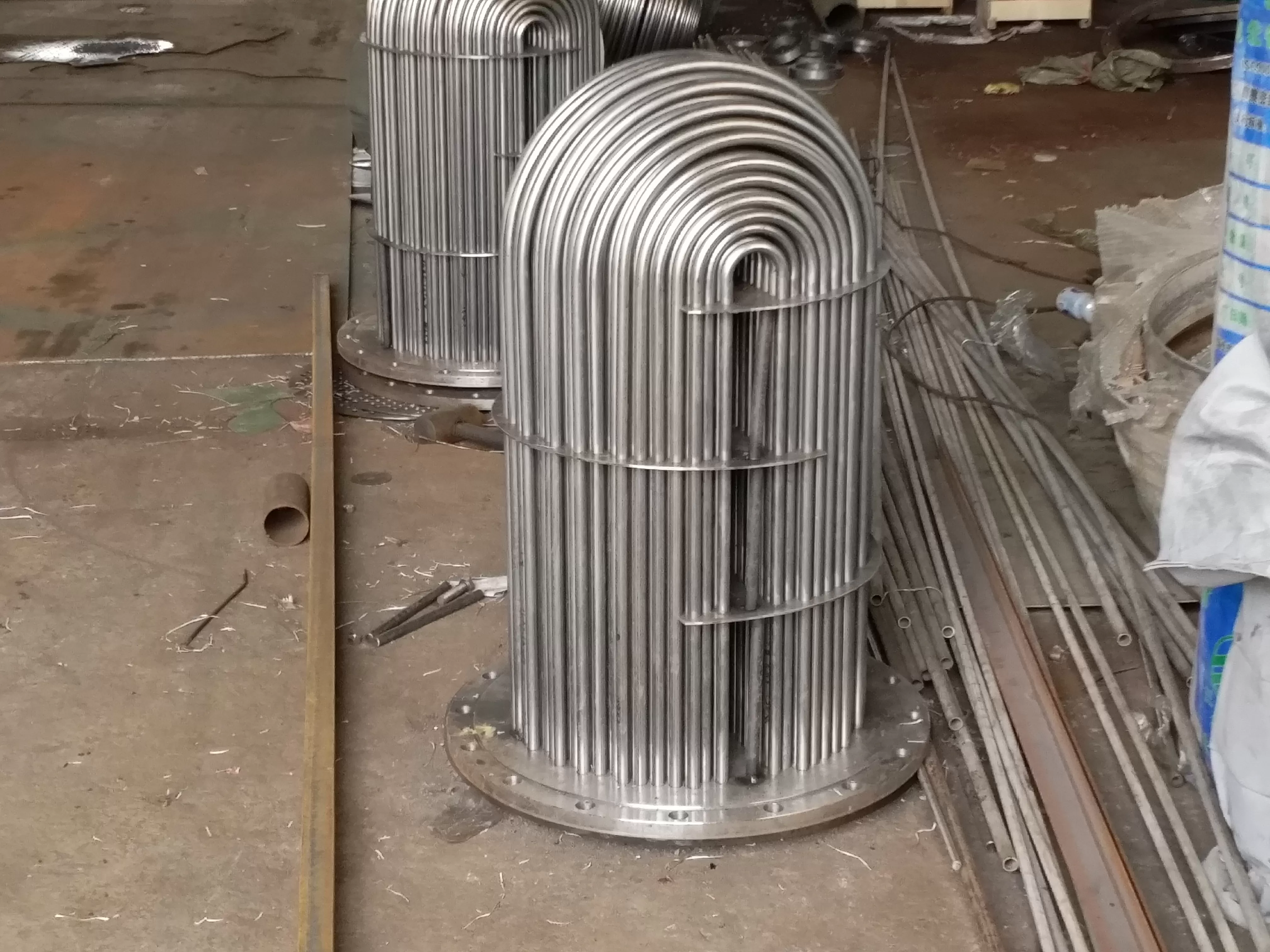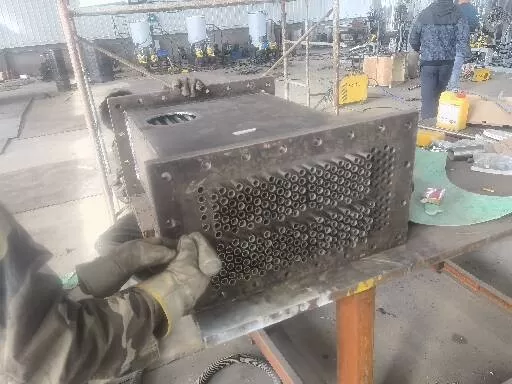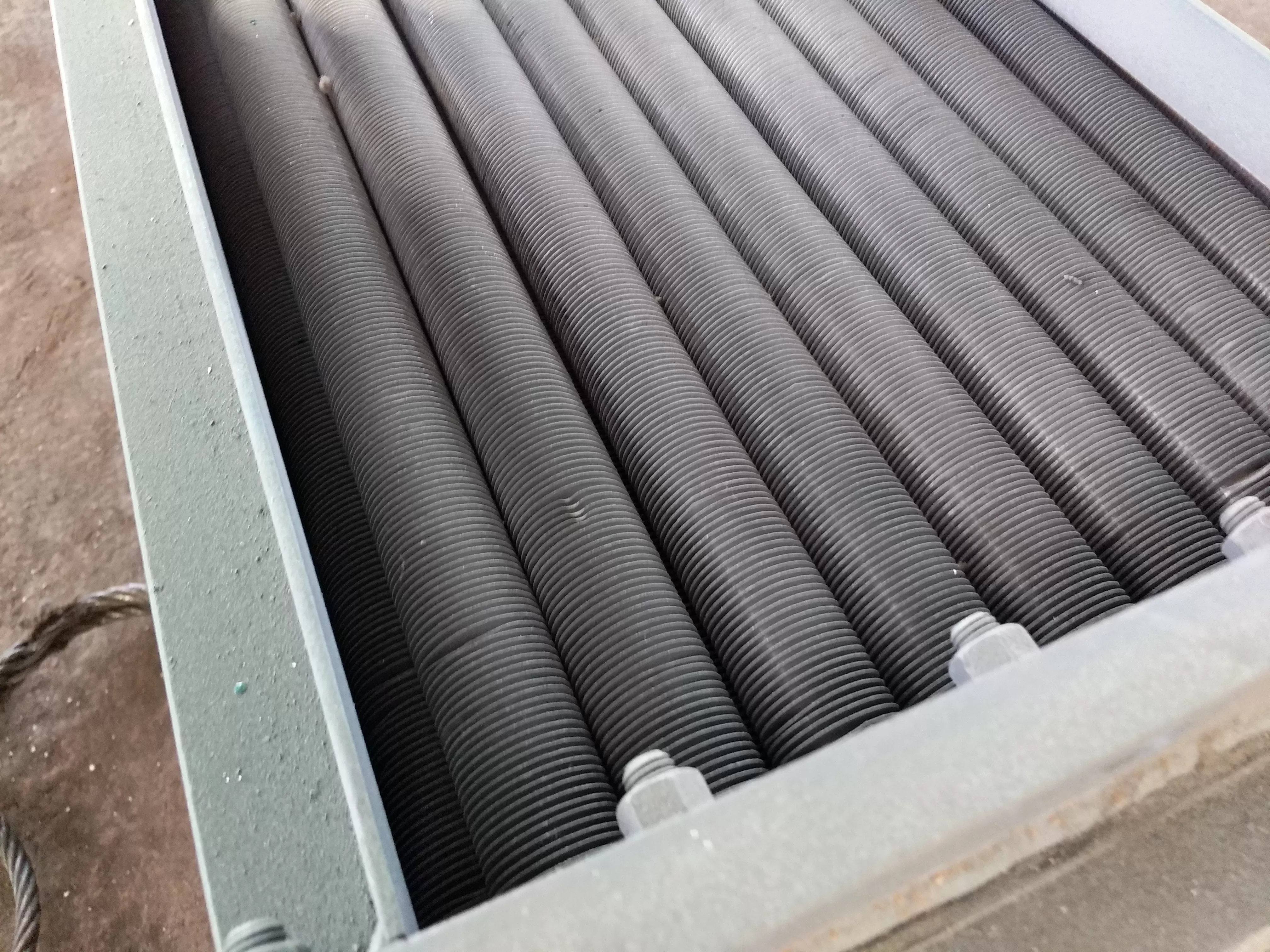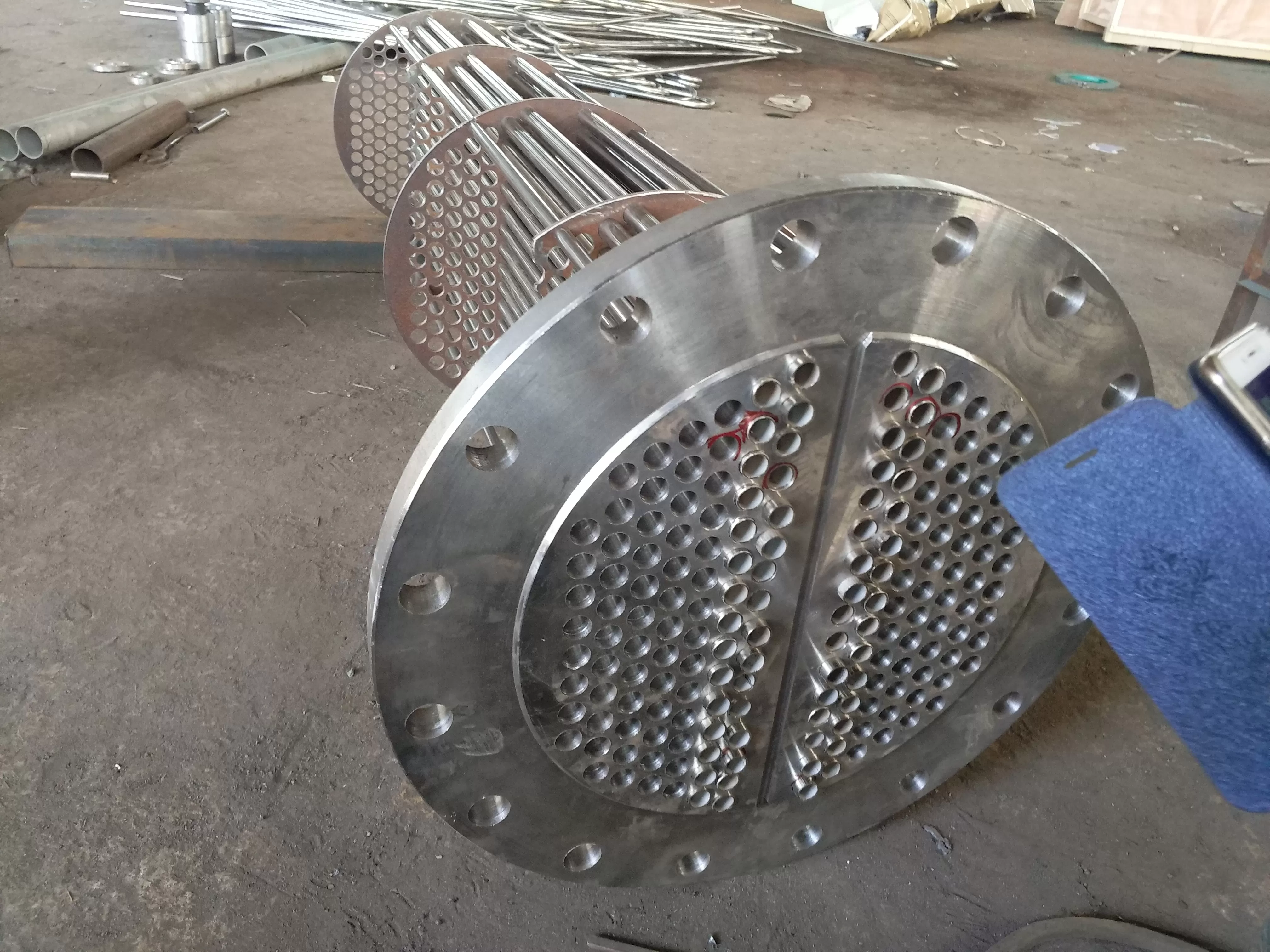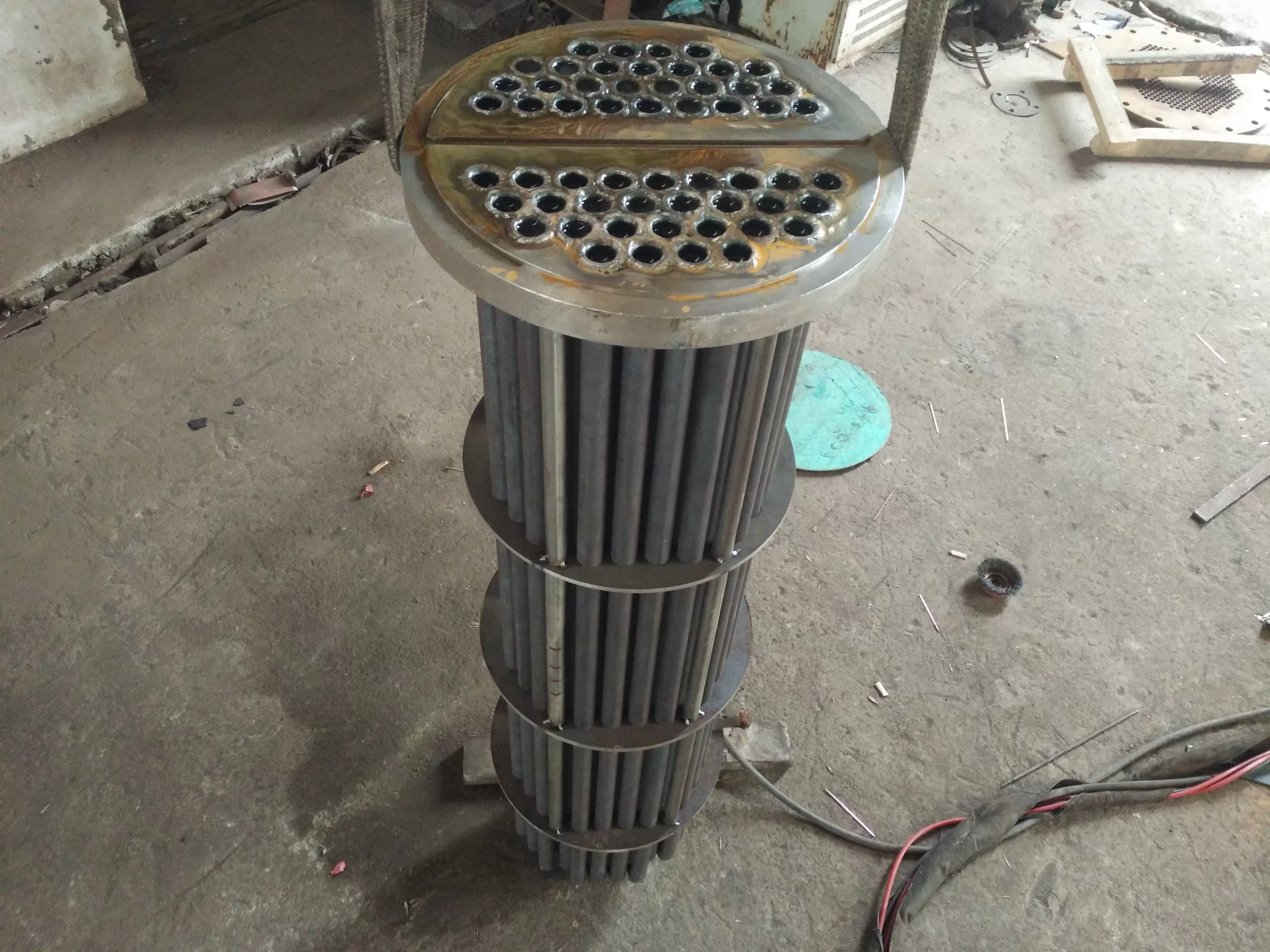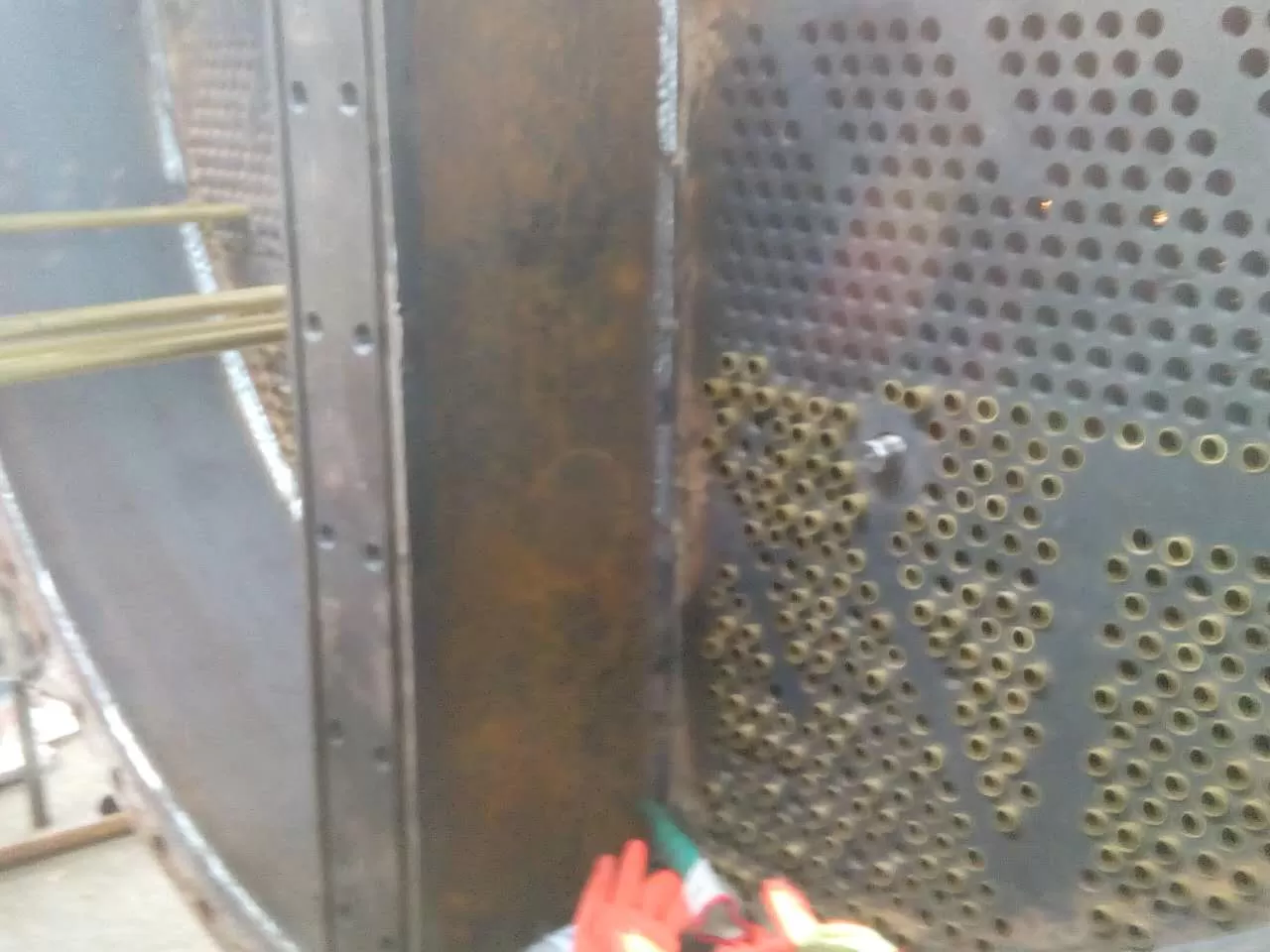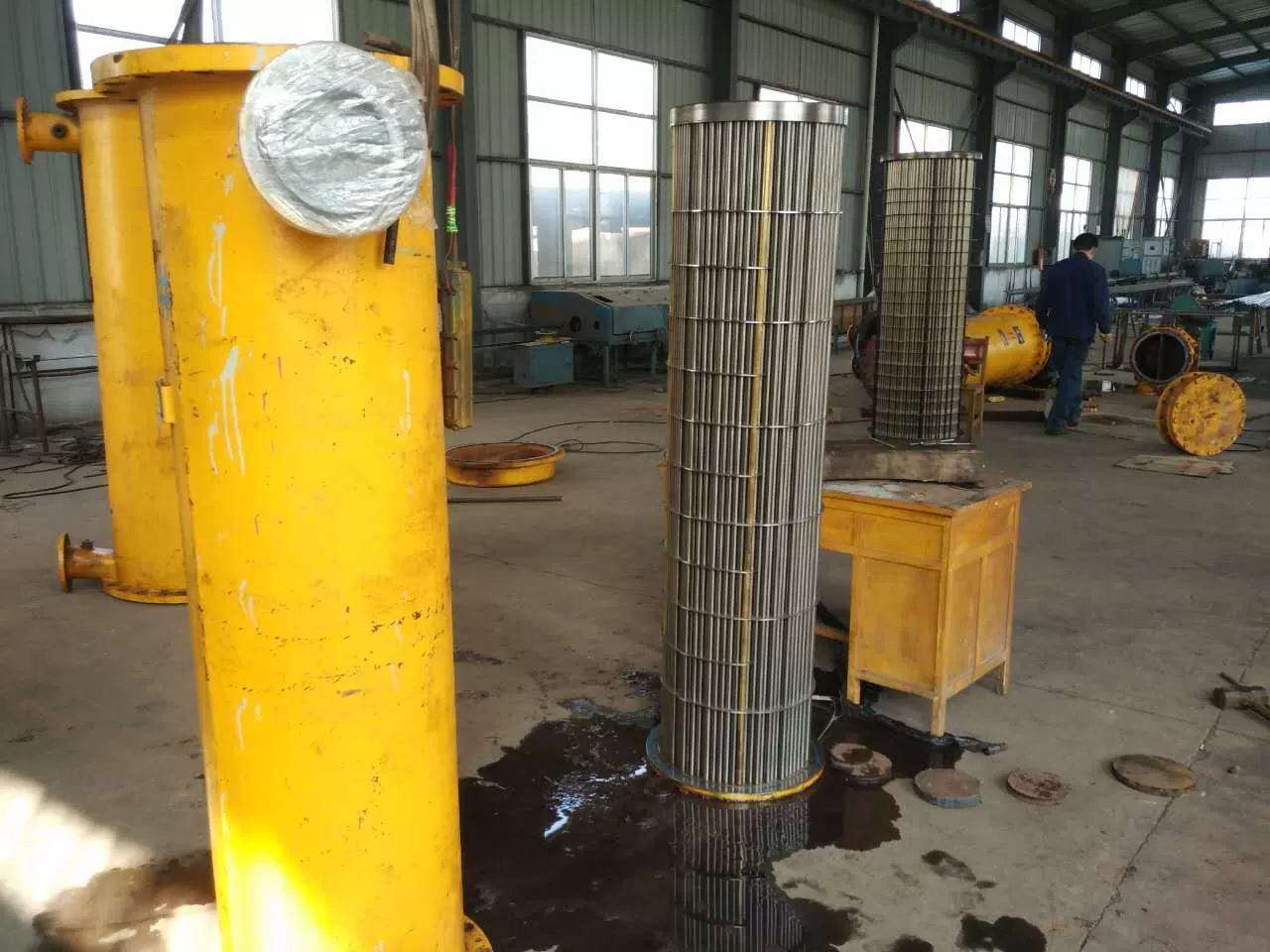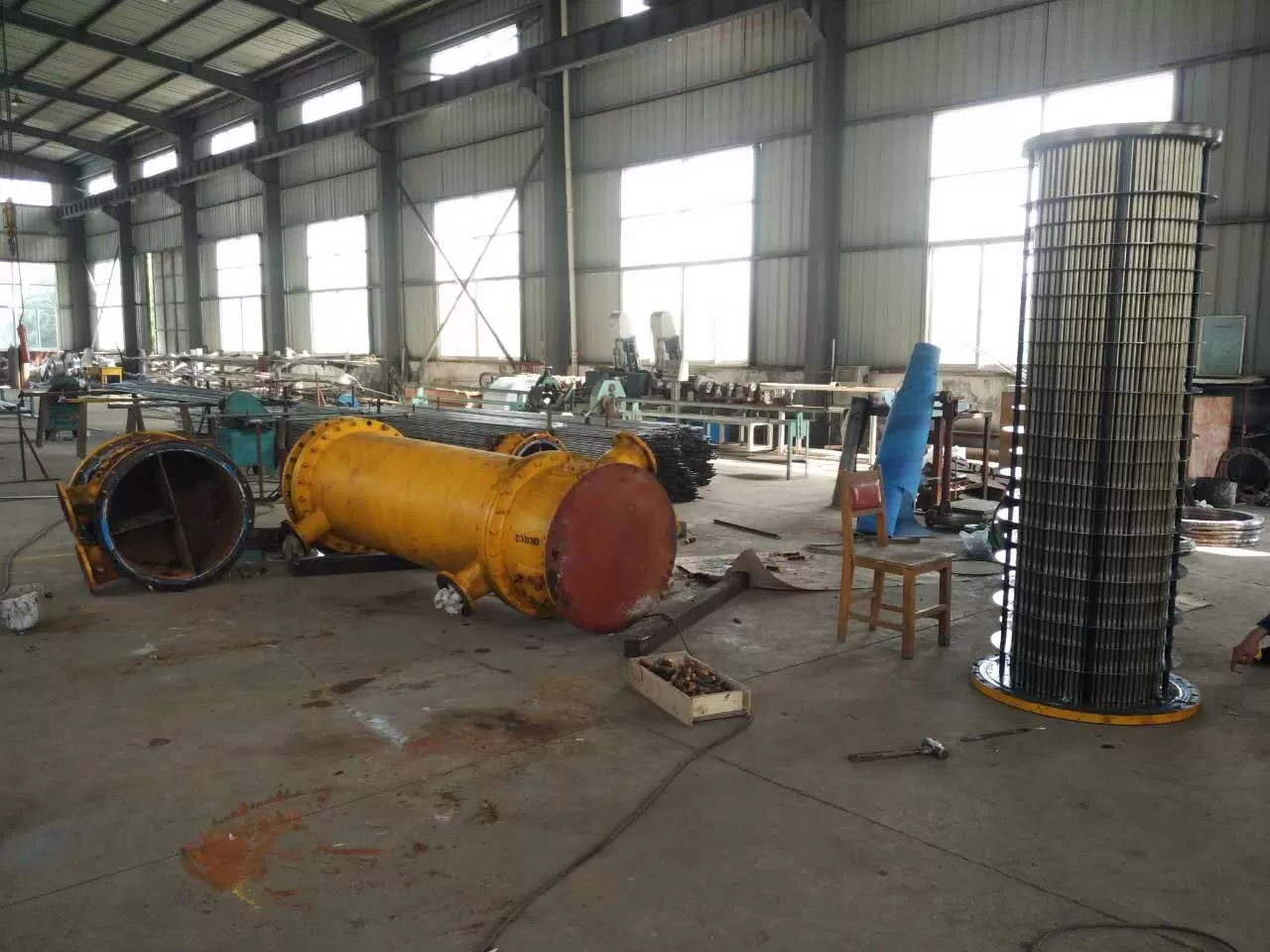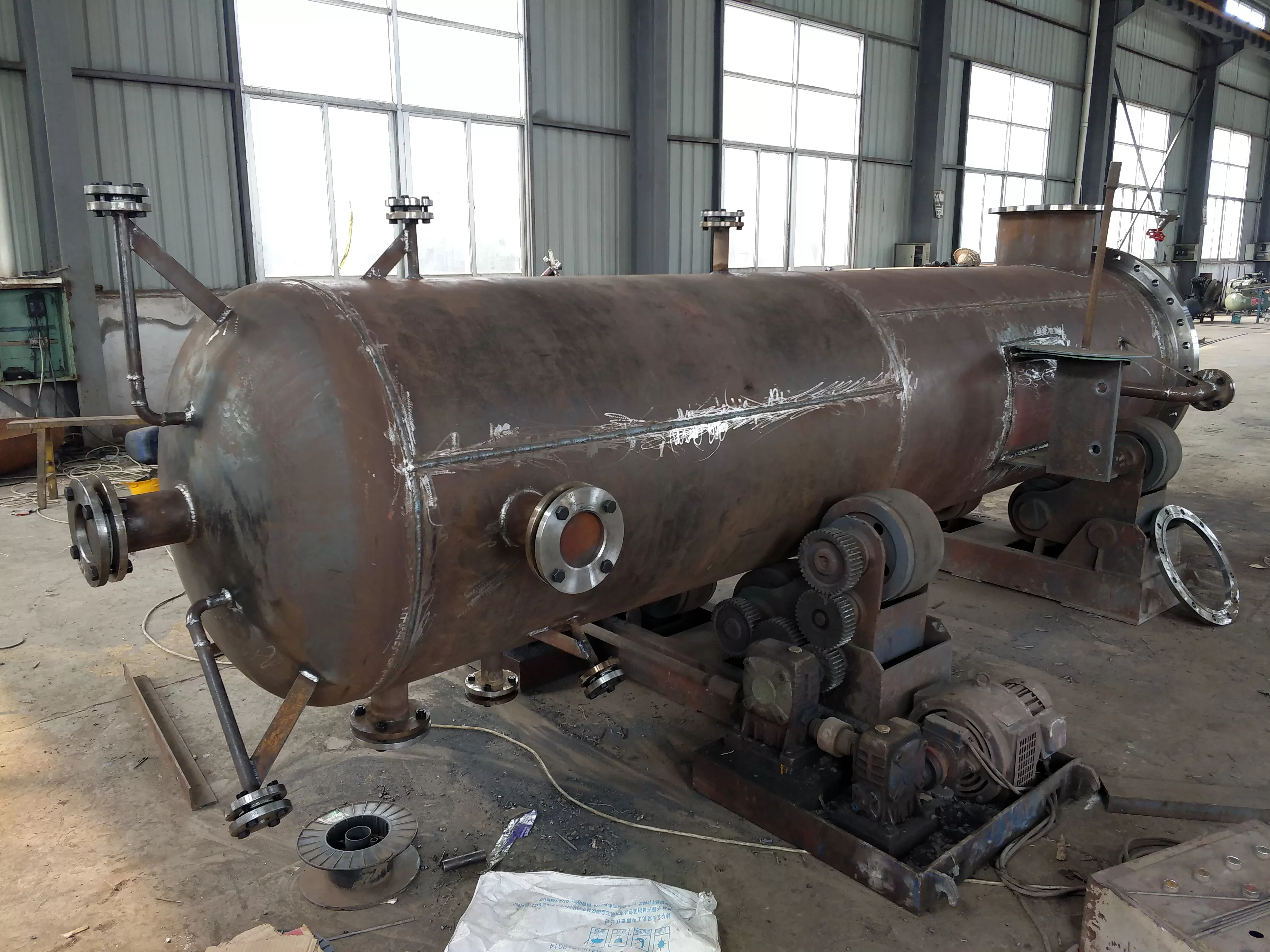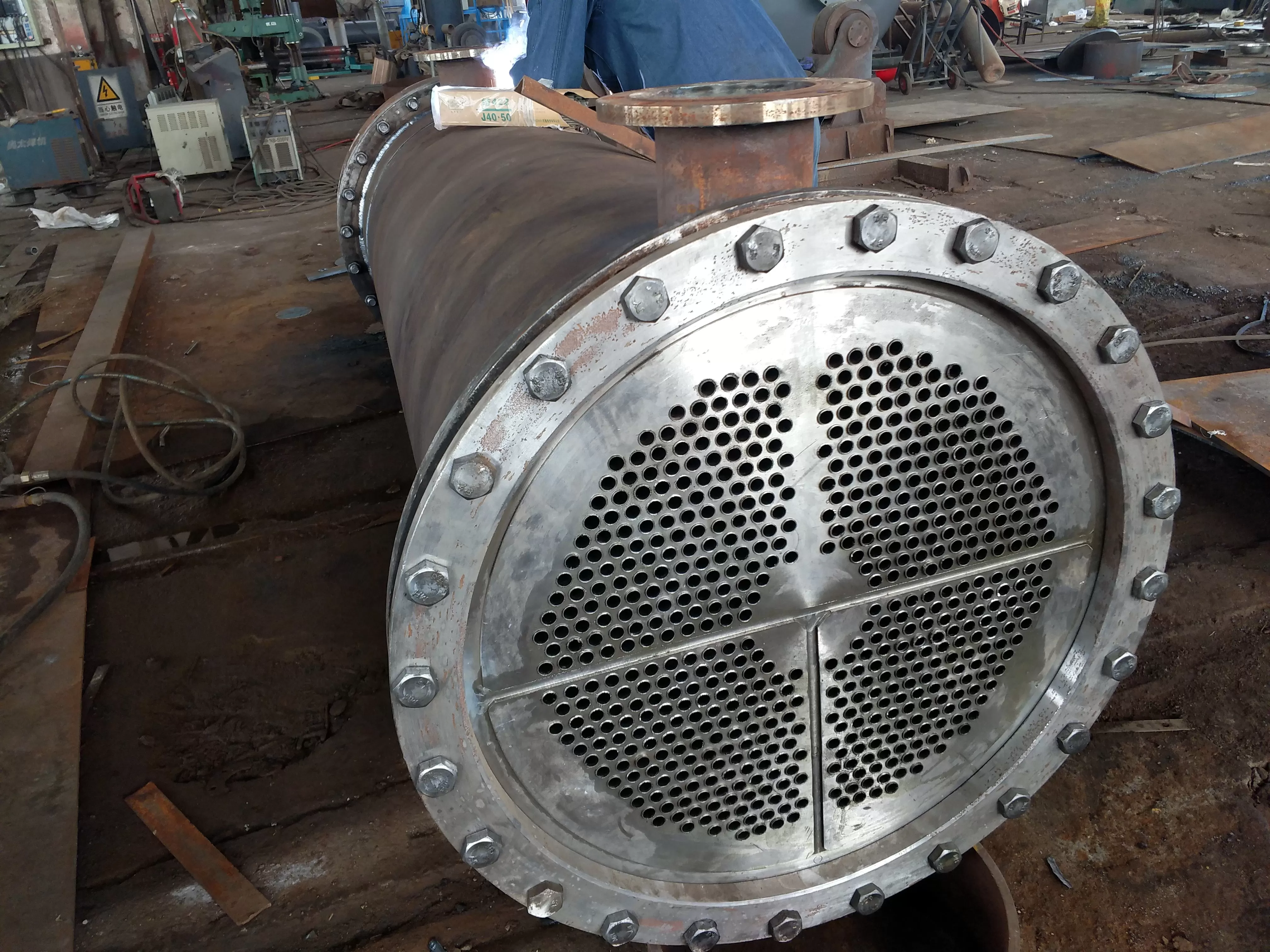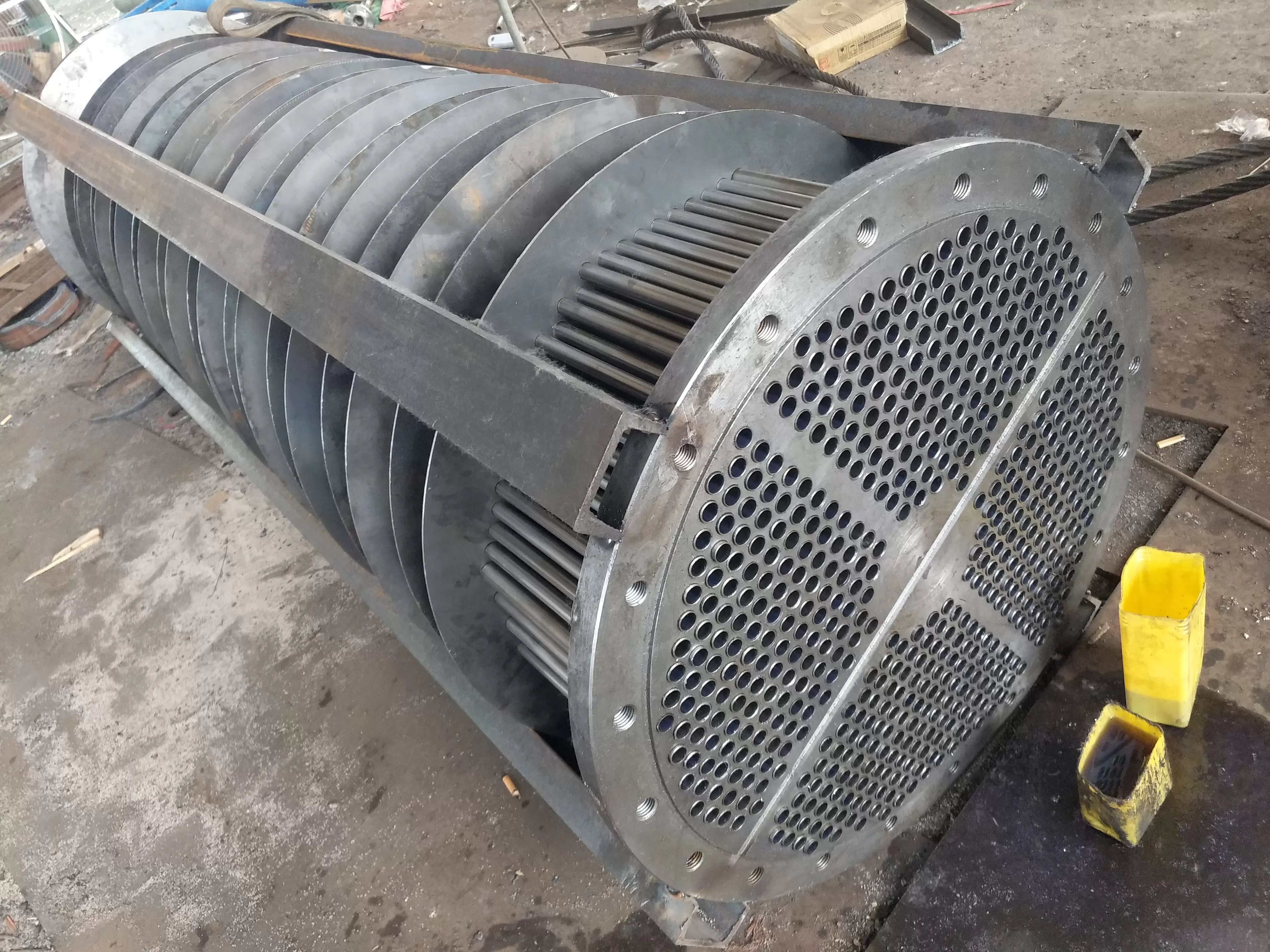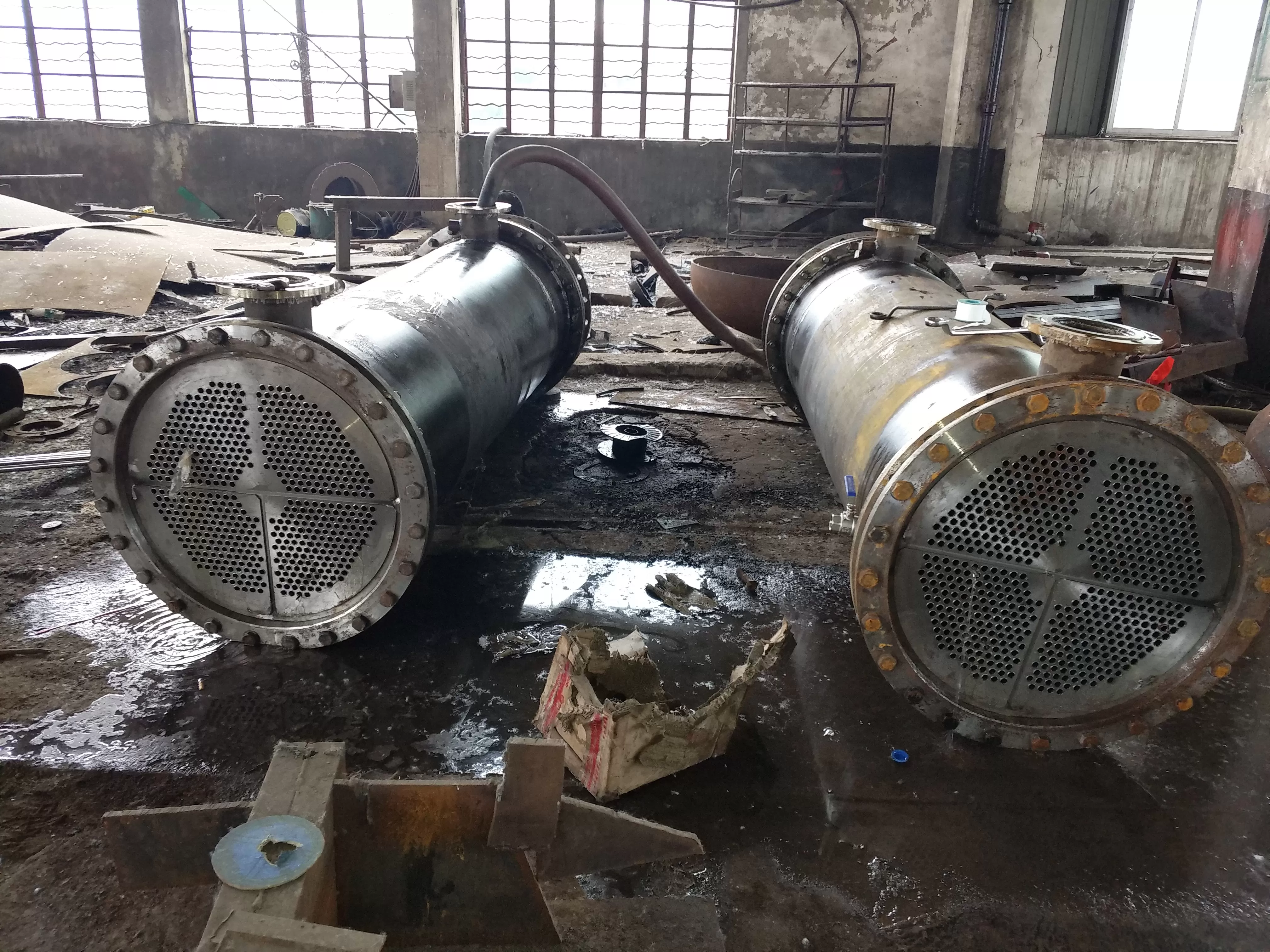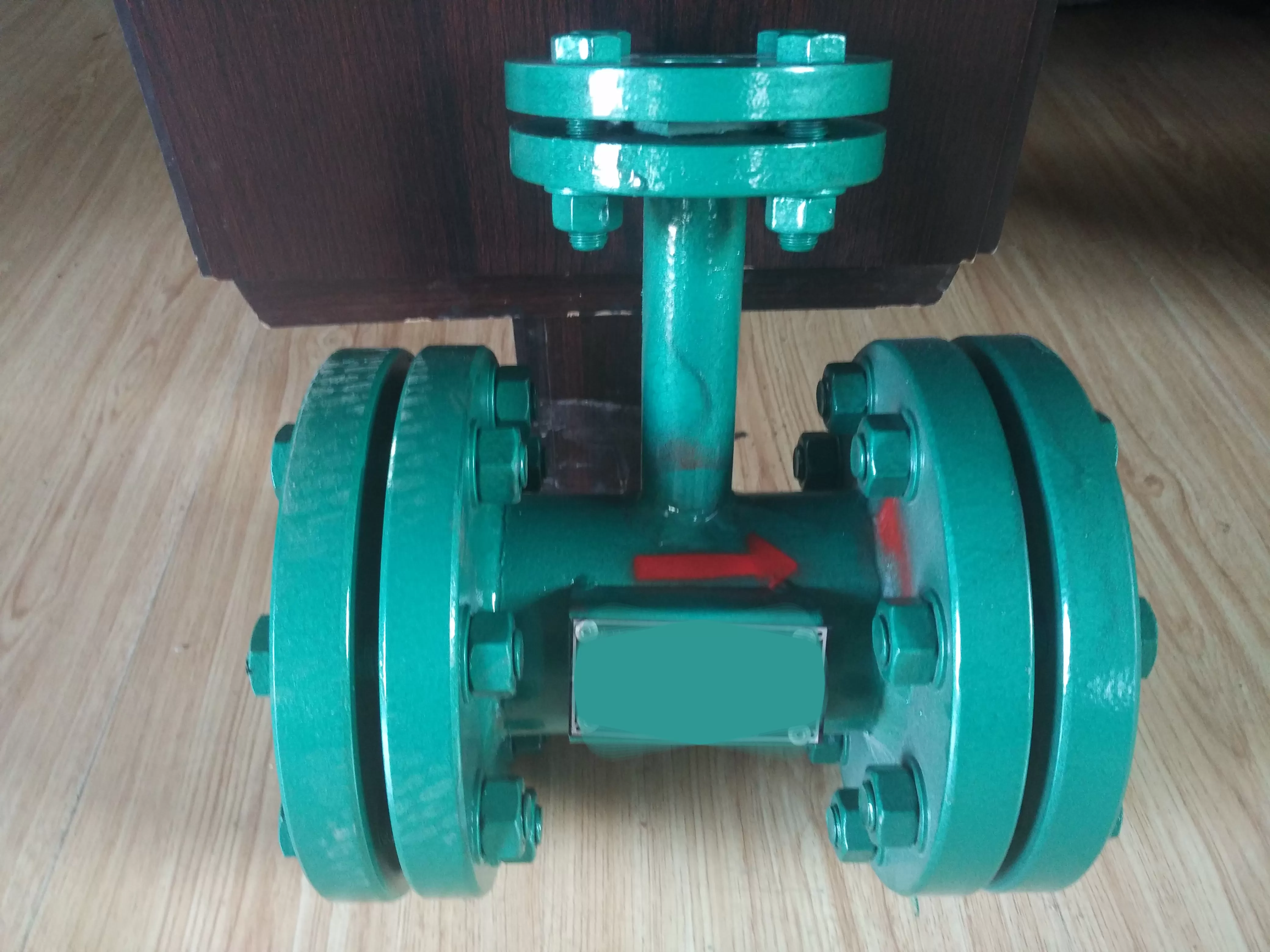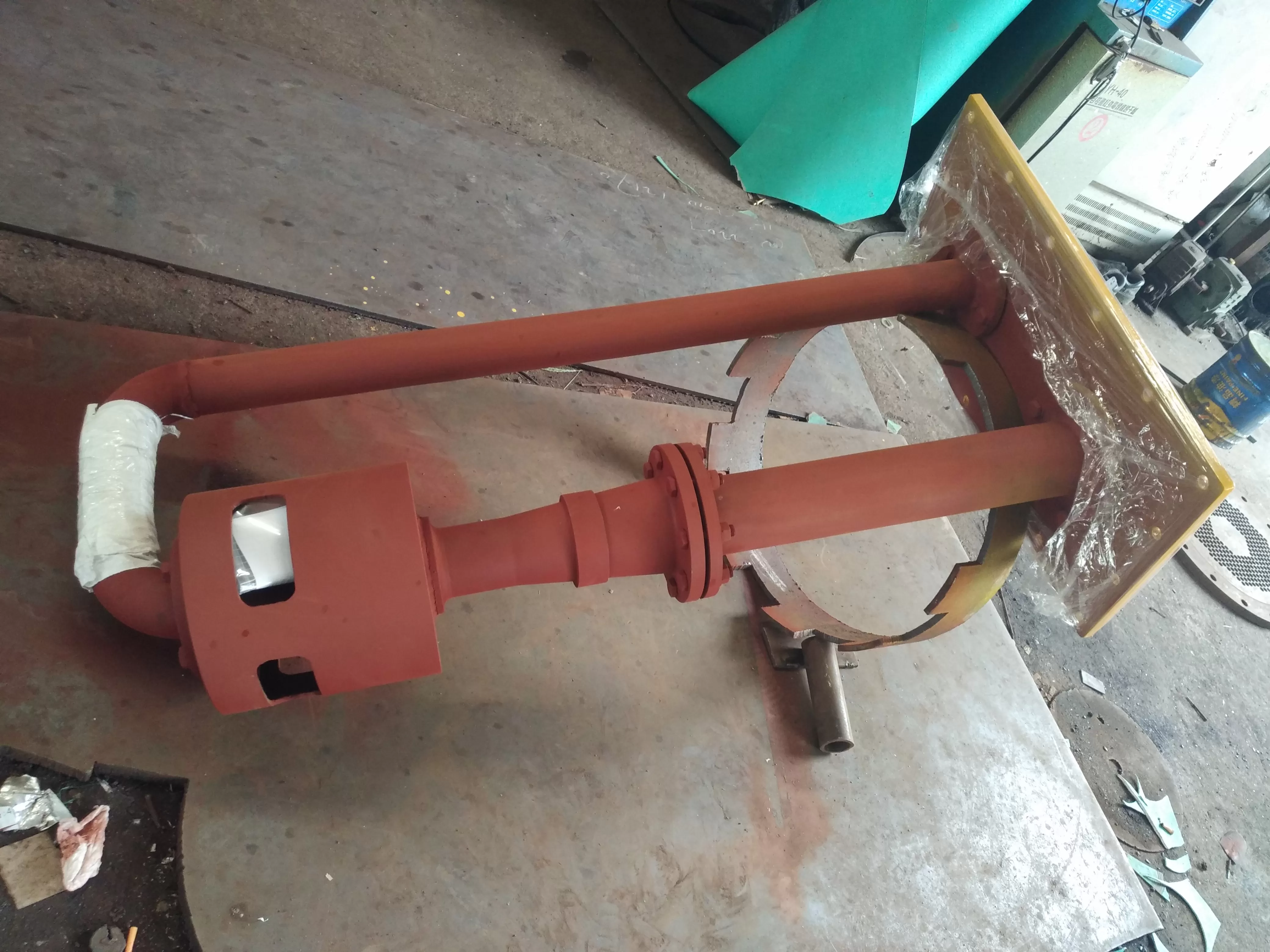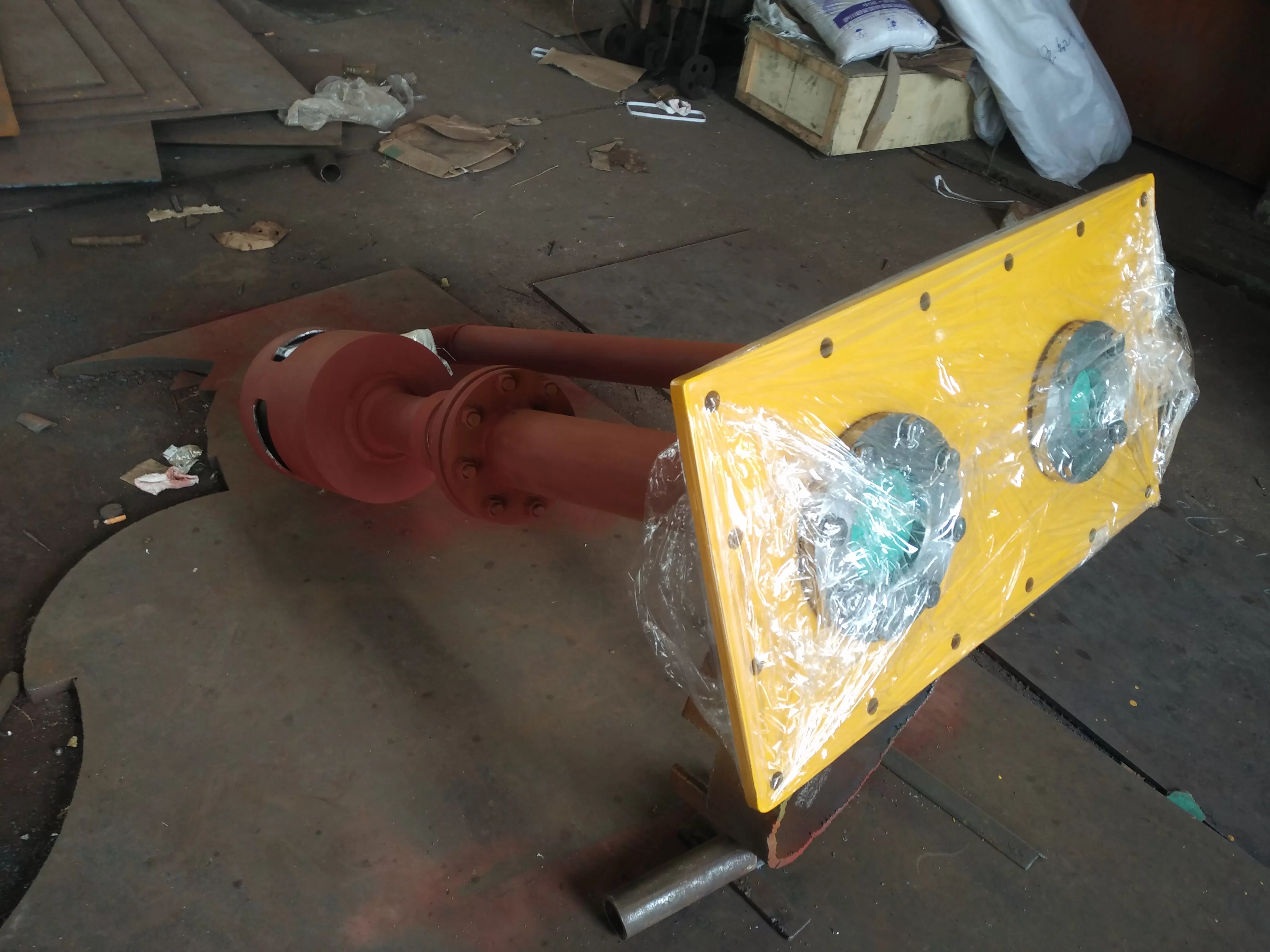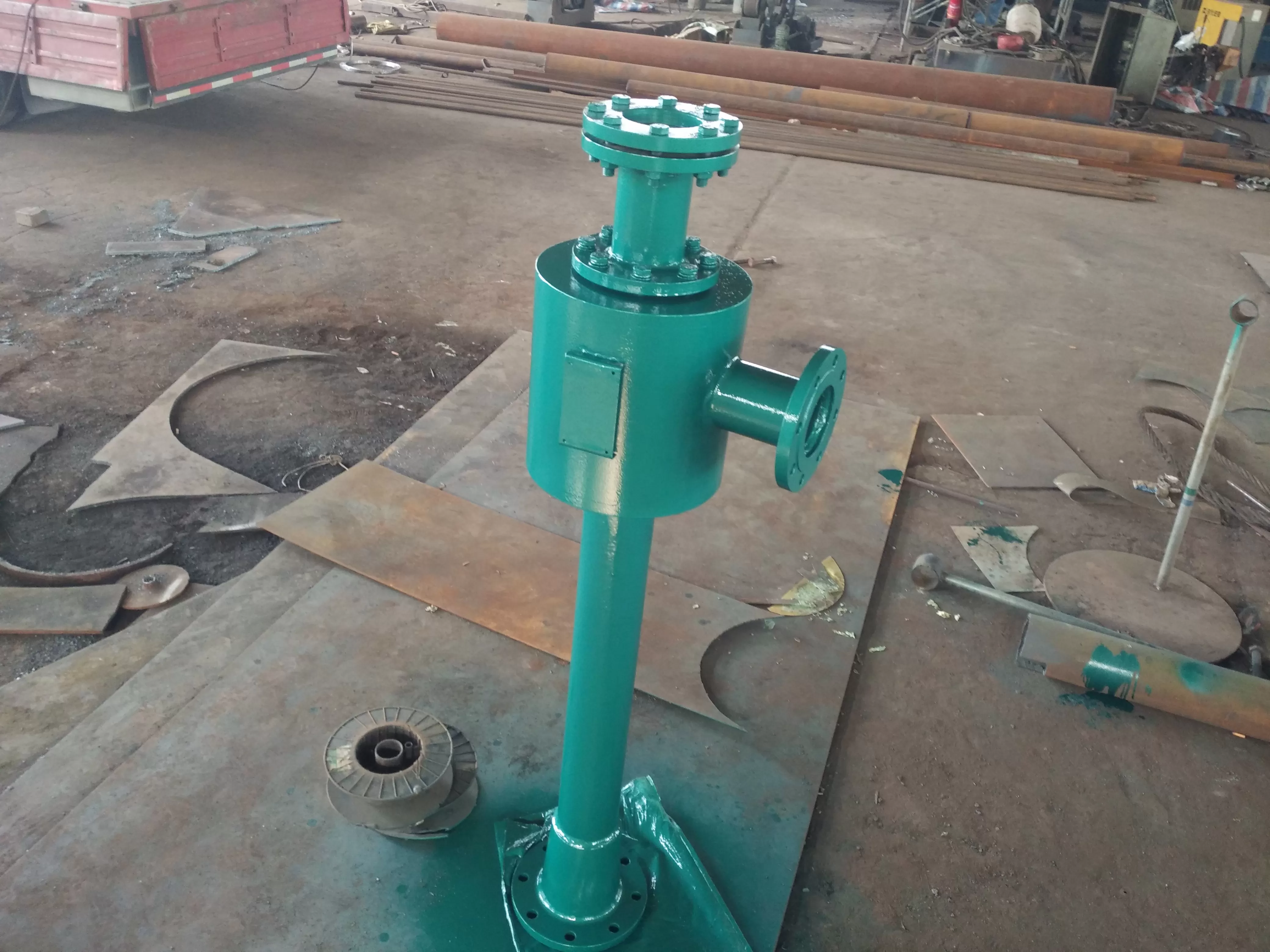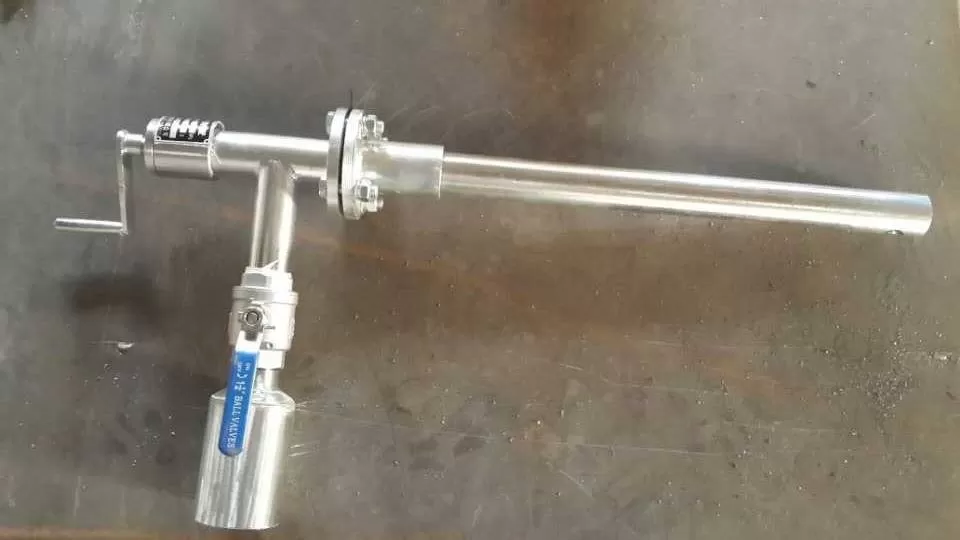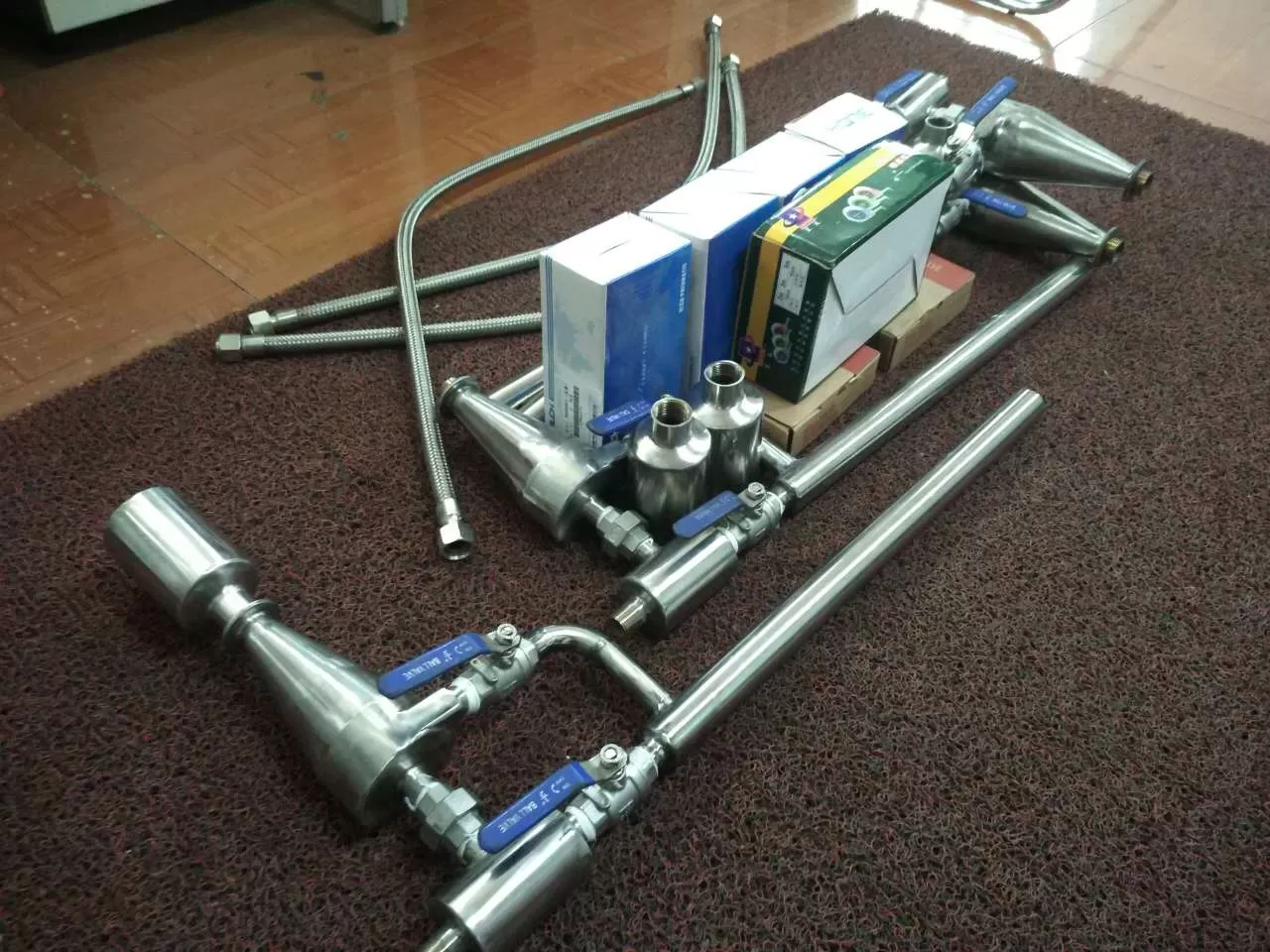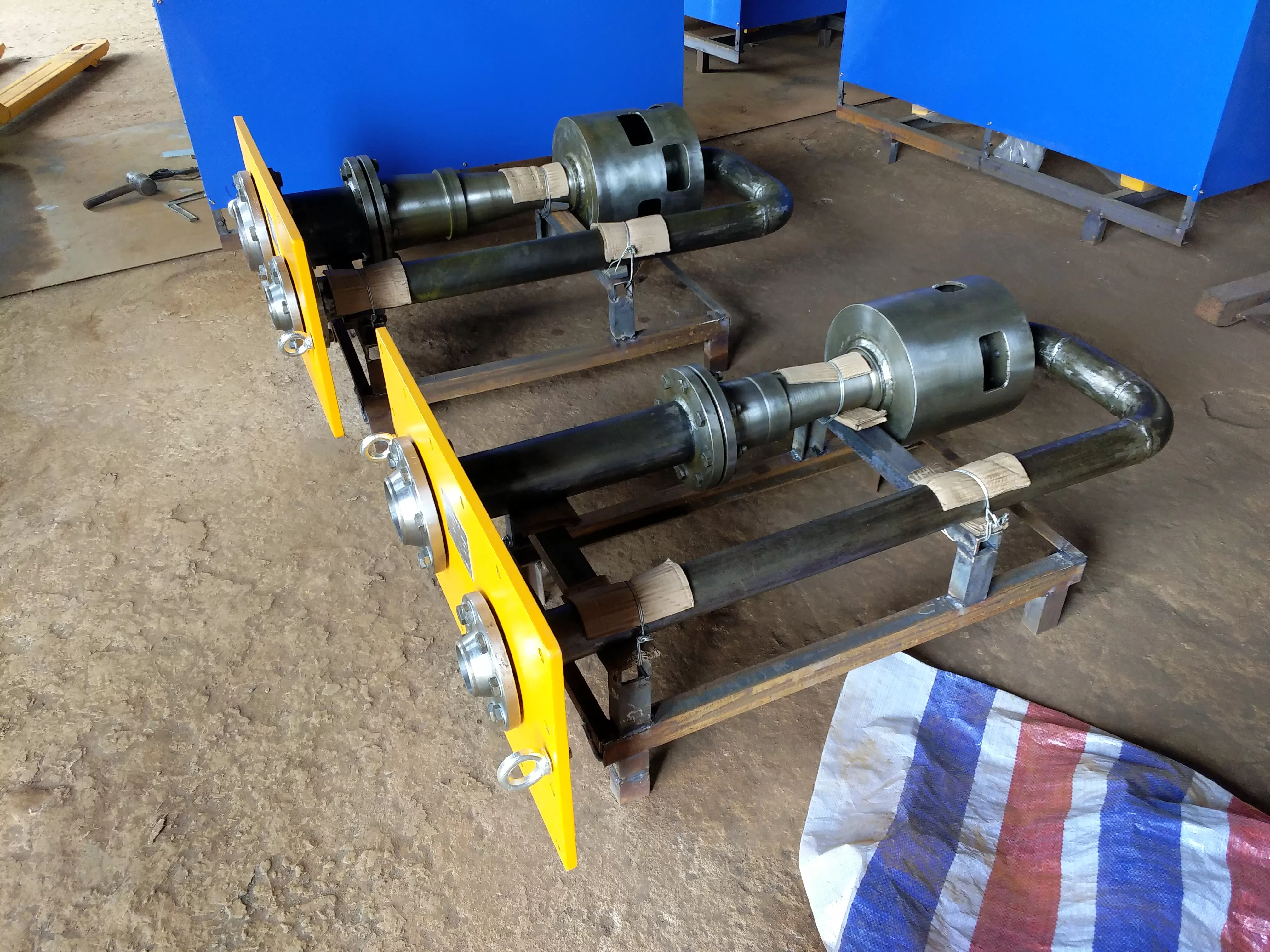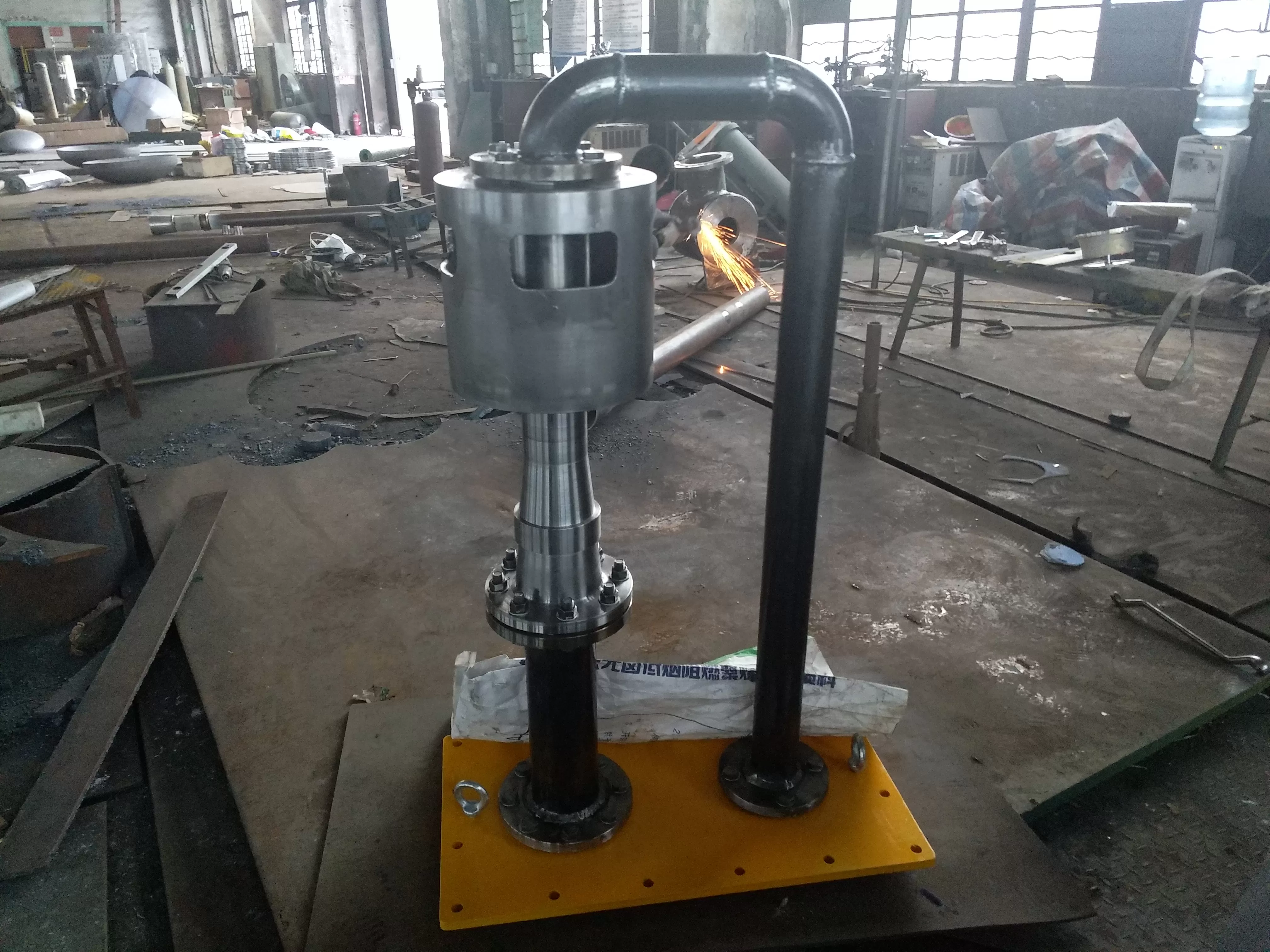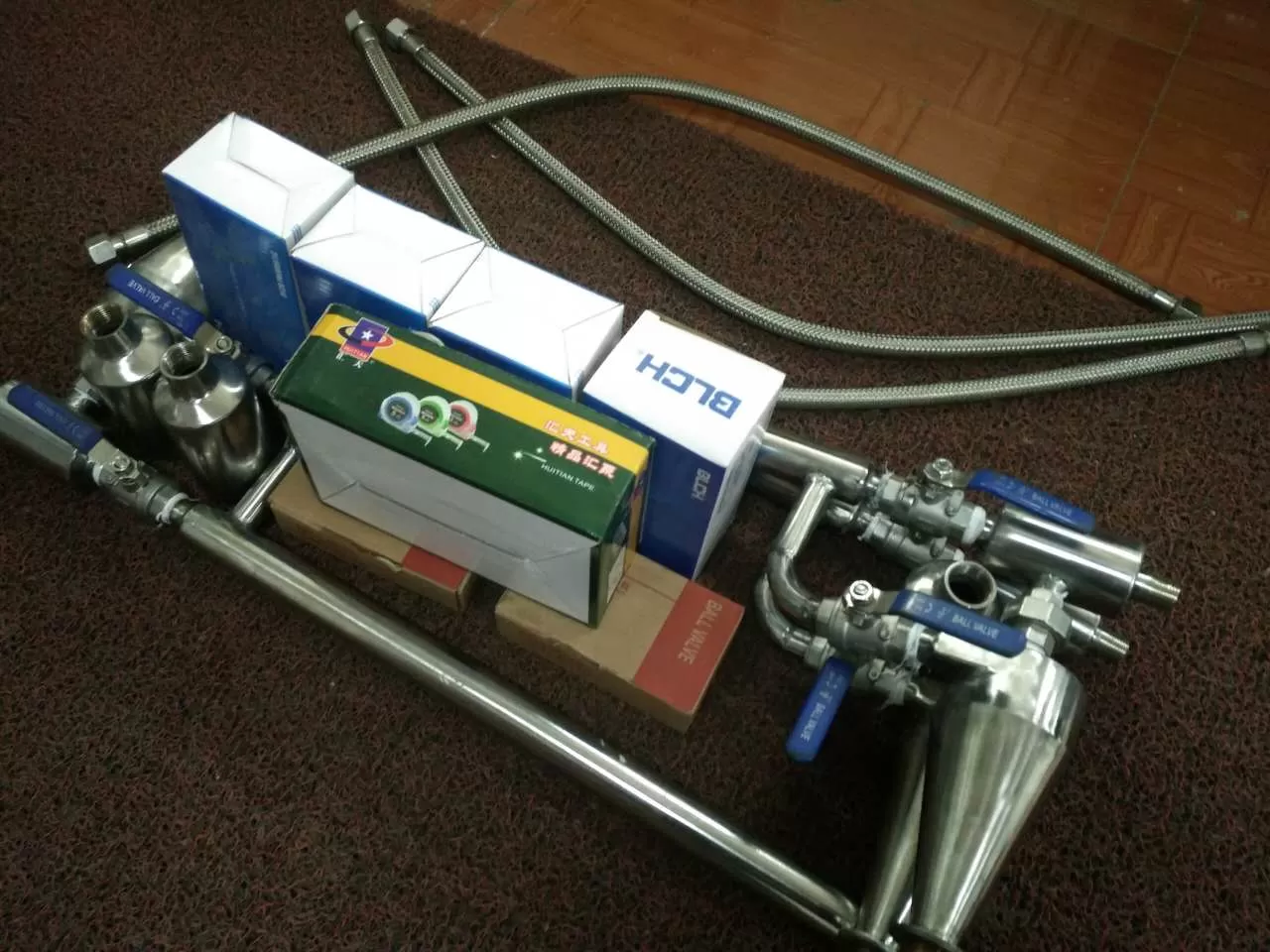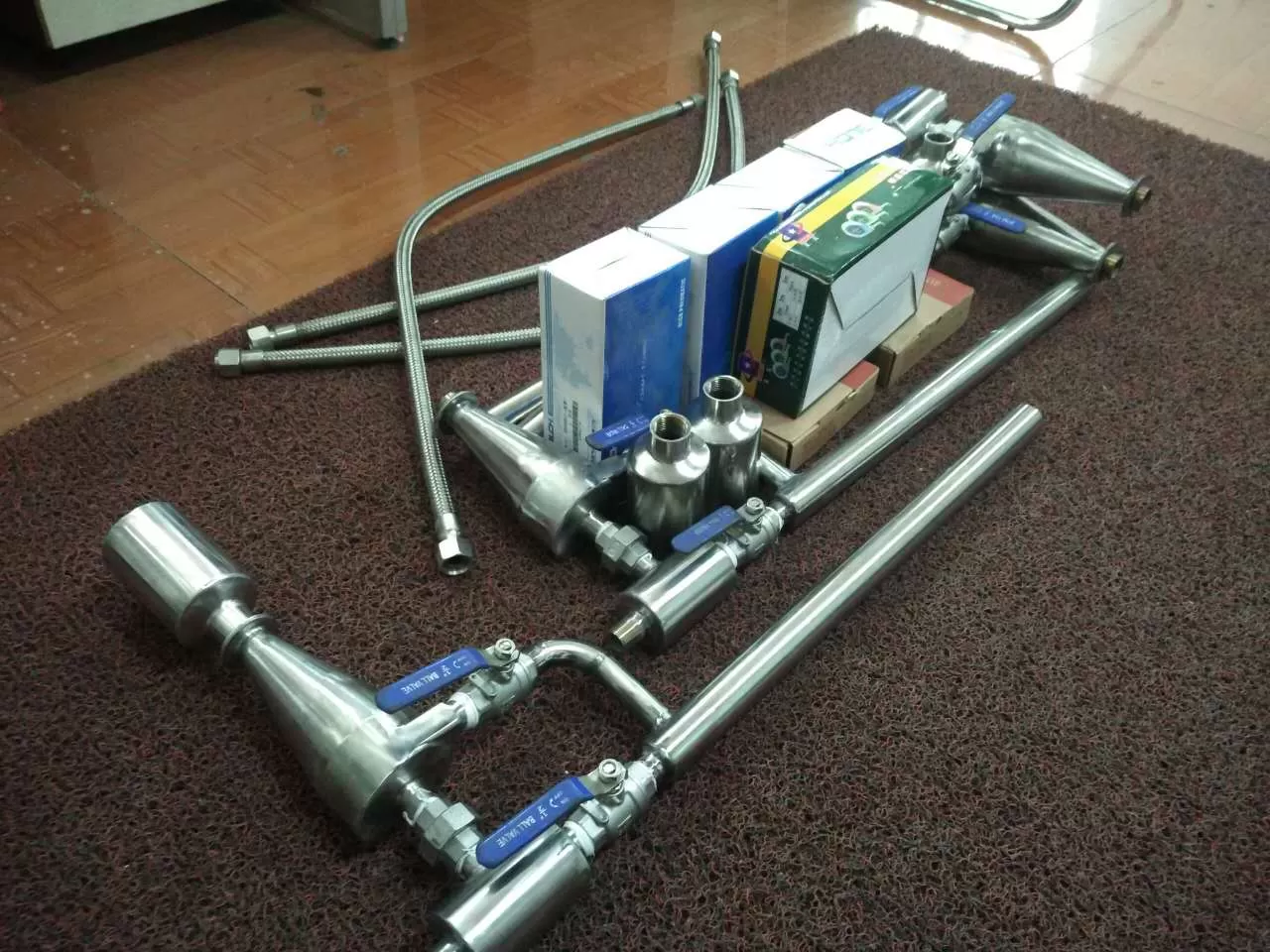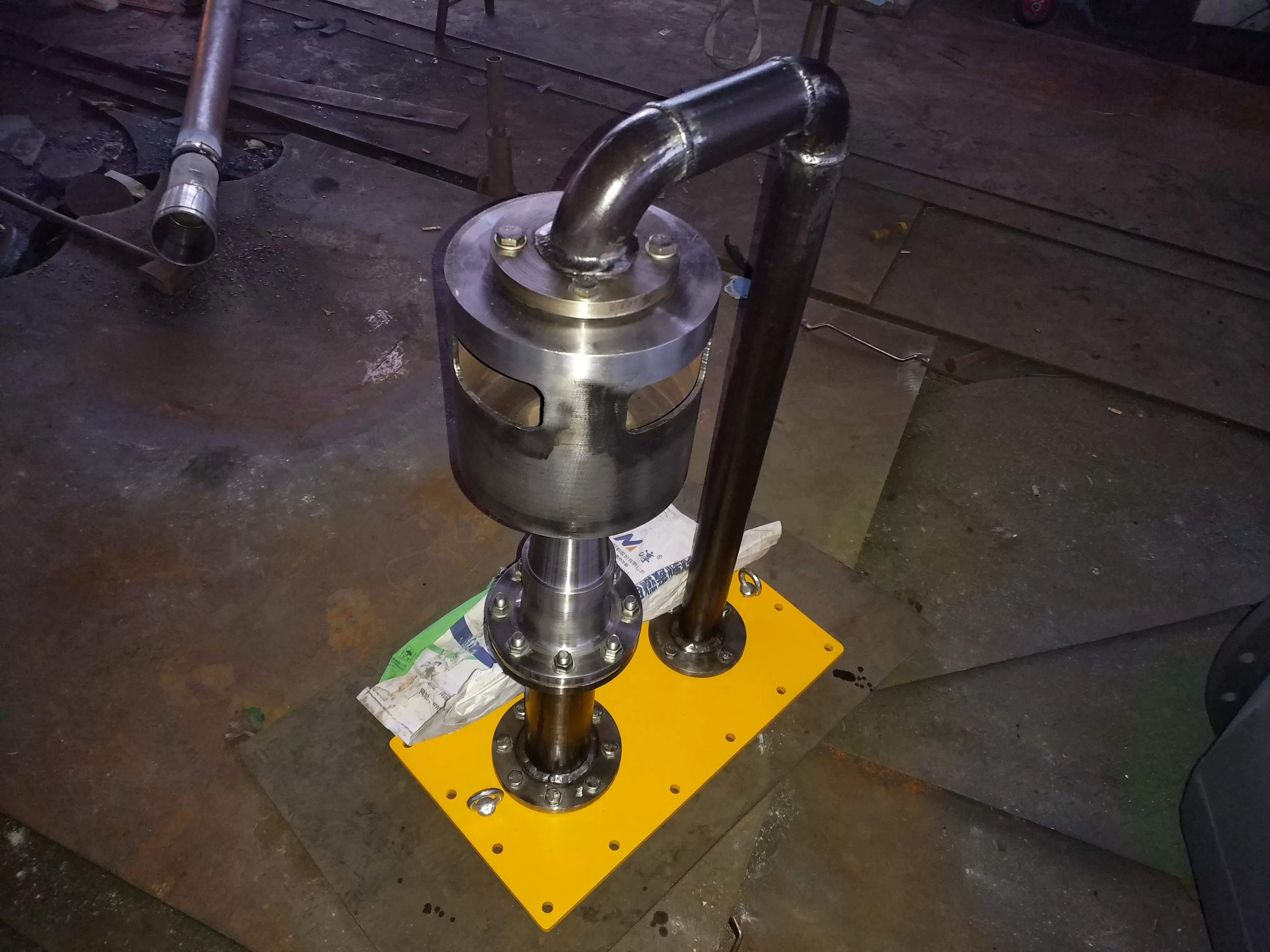Overview of regular sewage expansion vessels, regular sewage expansion devices, and expansion vessels:
Periodic blow down flash tank, also known as periodic blow down expansion tank. A periodic blow down expansion tank is a type of boiler that regularly discharges wastewater or wastewater with a pressure higher than that of a periodic blow down expansion tank. The wastewater is then depressurized and expanded to separate secondary steam and waste heat water. The secondary steam is discharged into the atmosphere or used as heat, and the waste hot water is usually discharged into the sewage system through a sewage cooling tank.
The sewage discharged from the boiler has the same working pressure and saturation water temperature as the boiler. A throttle valve is installed in the periodic blow down expansion tank to reduce the pressure, so as to expand and cool the capacity in the periodic blow down expansion tank and separate the secondary steam. So utilizing secondary steam and waste hot water as heat can recover some of the heat lost from boiler discharge and improve boiler efficiency.
Regular sewage expansion tank, periodic sewage expansion tank, abbreviated as expansion tank (also known as periodic expansion tank):
Periodic expanders, also known as periodic expansion vessels, should be designed and manufactured in accordance with pressure vessels GB150-98. The regular expander is connected to the regular port of the boiler and is used to reduce pressure and expand the capacity of the boiler. The discharged sewage is separated into secondary steam and waste hot water through thermal expansion in the regular expander, and then discharged through expansion, pressure reduction, and heat exchange in the expander. The secondary steam is led out through the pipeline of the valve, and the waste hot water is automatically discharged through the float level valve or overflow control valve. The heat energy can be recovered and reused. The regular quantity automatically adjusts with the change of boiler feedwater load to maintain a relatively stable discharge rate.
Regular sewage expansion tank, regular sewage expansion tank, expansion tank technology - capable of:
Regular discharge expansion vessel, regular discharge expansion device, expansion vessel mainly depressurizes and expands the regular sewage of the boiler. The periodic discharge sewage undergoes secondary boiling at lower pressure to obtain a portion of secondary steam, while cooling the discharged sewage; The secondary steam and sewage are separated in the regular sewage expansion tank, the regular sewage expansion tank, and the expansion tank. The separated steam is discharged from the upper outlet, and the sewage is discharged into the trench from the lower sewage outlet.
Introduction to regular sewage expansion containers, regular sewage expansion devices, and expansion containers:
It is to discharge the boiler water from the bottom of the boiler as easily accumulated water slag to discharge the water slag inside the furnace. The sewage is expanded in the expansion container, cooled and depressurized, generating secondary steam, and the heat is recovered and utilized.
Regular sewage expansion tank, regular sewage expansion tank, and expansion tank working process:
Regular sewage expansion vessel, regular sewage expansion device, the function of the expansion device is to expand and evaporate the boiler's sewage, and separate the steam from the sewage. The separated steam can be recovered to the thermal system (such as leading the steam to the deaerator, etc.), and the unexpired sewage can be sent to the sewage cooler to heat the softened water, etc. It can be seen that regular sewage expansion vessels, periodic sewage expansion vessels, and expansion vessels are treatment equipment that effectively utilize the heat energy contained in boiler wastewater.
Regular discharge expansion vessel, regular discharge expansion device, expansion device structure and main specifications:
Regular sewage expansion tank, regular sewage expansion tank, composed of the main body, pipeline system, and accessories. The main body of the regular sewage expansion tank consists of a cylindrical shell and an internal device. The internal devices include partitions, louver steam separators, and floating balls for controlling control valves. For ease of repair, flange connected shells or manholes can be installed on the shells. Regular discharge expansion vessels, periodic discharge expansion vessels, and expansion vessels can be divided into two types: vertical (periodic discharge expansion vessels, periodic discharge expansion vessels, and expansion vessels). The support of vertical (periodic discharge expansion vessels, periodic discharge expansion vessels, and expansion vessels) can be placed on the ground at the bottom, while the support of hanging (periodic discharge expansion vessels, periodic discharge expansion vessels, and expansion vessels) is located at the waist and can be placed on the platform. In addition, external accessories such as safety valves, pressure gauges, water level control valves, and liquid level gauges are installed.
Regular sewage expansion container, regular sewage expansion device, expansion container manufacturer:
Regular discharge expansion containers, periodic discharge expanders, and expansion container manufacturers are increasing in number with the continuous development of the economy. Regular discharge expansion containers, periodic discharge expanders, and expansion containers play an indispensable role in boilers and other industries. More and more people are becoming aware of it, which is why it is attracting more and more attention from users. Therefore, choosing a manufacturer for regular discharge expansion containers is also a non critical part. Regular discharge expansion containers, periodic discharge expanders, and expansion containers are also types of pressure vessels. Therefore, production must be carried out according to the production standards of pressure vessels to ensure the safety of regular discharge expansion containers, periodic discharge expanders, and expansion containers.
Selection of regular sewage expansion vessels, regular sewage expansion devices, and expansion devices:
Regular discharge expansion containers, regular discharge expansion devices, expansion container manufacturers, and an increase in the number of expansion container manufacturers make it necessary for users to choose suitable products, mainly by understanding their own operating conditions; Secondly, one must be clear about their own requirements; When selecting a manufacturer, it is important to understand the basic information, qualifications, and technical level of the manufacturer. Only in this way can the device be ensured.
Regular sewage expansion container, regular sewage expansion device, working principle of expansion container:
The boiler wastewater is uniformly discharged into the blow down flash tank. The wastewater moves tangentially in the cylindrical partition of the outer shell and immediately vaporizes into secondary steam. It is separated by a steam water separator with a hundred leaf window on the upper part and then led out through the outlet of the fixed discharge section. The remaining wastewater is discharged through the water level control valve
The regular discharge of sewage from the boiler is saturated water under the working pressure of the boiler, which has a high temperature and high enthalpy value. If the pressure is lowered, the vaporization of water will decrease, causing the original saturation state to be destroyed. Some water will release overheated heat to become saturated water under pressure, while others will absorb the latent heat of evaporation and become steam. This type of evaporation is called flash evaporation. The periodic discharge expander utilizes the principle of flash evaporation to obtain secondary steam. The boiler wastewater with fixed parameters is then fed into the expander with a volume several times larger than the pipeline, causing a decrease in pressure and an increase in volume, resulting in flash evaporation of steam. At the same time, regular discharge expansion vessels, periodic discharge expansion vessels, and expansion vessels rely on ion separation, force separation, and molecular friction separation to separate gas and water, thereby obtaining low salinity secondary steam. The discharged sewage enters the periodic discharge expansion vessel through the tangential pipe, and the periodic discharge expansion vessel and expansion vessel rotate the fluid, generating steam along the periodic discharge expansion vessel, the periodic discharge expansion vessel, and the expansion vessel rise, After passing through the space, the entire separation process of steam and water is completed through the louver steam water separation device.
Regular discharge expansion tank, regular discharge expansion tank, and operation precautions for expansion tank:
1. When the boiler requires a large amount of discharge, or when the liquid level control valve fails, the bypass valve should be opened to increase the discharge.
2. The opening of the exhaust valve should be adjusted to maintain the working pressure inside the fixed exhaust.
3. Adjust the opening of the liquid level control valve to ensure that the water level of the fixed discharge is at the intermediate position of the water level gauge.
4. The working pressure of the safety valve must be set according to regulations.
Regular sewage expansion containers, regular sewage expansion devices, and expansion containers - different specifications can be arranged according to user needs in a separate design plan! Interested parties contact us!
Regular discharge expansion containers, regular discharge expansion devices, and order instructions for expansion containers:
1. Inform the discharge volume as the volume.
2. Work pressure and working temperature.
3. Design pressure and design temperature.
Regular sewage expansion tank, regular sewage expansion tank, technical parameters of expansion tank:
[Regular sewage expansion vessel, regular sewage expansion device, expansion vessel model]: [DP-0.8-35] - [Volume m] ³ 0.8~7.5] - (Working pressure MPa0.15) - (Working temperature ℃ 127~300)
| 型号 | 设计压力MPa | 设计温度℃ | 工作压力MPa | 工作温度℃ | 容积m³ | 设备-量kg |
| DP-0.8 | 0.17 | 150 | 0.15 | 127 | 0.8 | 396 |
| DP-3.5 | 0.17 | 150 | 0.15 | 127 | 3.5 | 1062 |
| DP-7 | 0.17 | 150 | 0.15 | 127 | 7 | 1820 |
| DP-7.5 | 0.17 | 150 | 0.15 | 127 | 7.5 | 1880 |
| DP-12 | 0.17 | 150 | 0.15 | 127 | 12 | 2685 |
| DP-16 | 0.69 | 200 | 0.15 | ≤170 | 16 | 5132 |
| DP-35 | 0.17 | 150 | 0.15 | 127 | 35 | 6835 |
| DP-7.5-I | 0.79 | 300 | 0.15 | 300 | 7.5 | 2488
|
